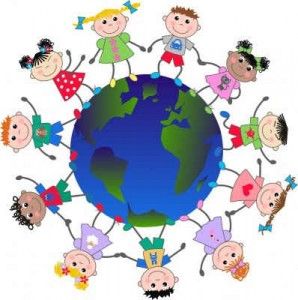
Culture is something that everyone has. Institutions, families, and groups have culture. When a child’s culture is recognized and celebrated, they will thrive in their environment. Parents need to be the cheerleader for their child in helping them feel comfortable in the skin they are in. Children need to know they are safe, respected, and honored. If that is threatened at any moment, it could jeopardize learning.
A personal example: We live in the suburb of Salt Lake City. We made the decision to move from the diversity of North Salt Lake so that we could have a home that could accommodate our 5 children. I was a bit worried about the greater lack of diversity. As our younger two children began preschool and first grade in their new monochromatic culture, I worried as a black mom from Greater Cleveland. I questioned, what this would do to my children’s self esteem? As the school year began, I was glad to hear that the teacher wanted each child to share their culture and family in class over the course of the week. Since my daughter’s last name began with the letter D, she presented in August. She spoke about her dad’s Wyoming farming family, her mother’s sharecropping and runaway slave family history, family celebrations, such as Kwanzaa, and lastly her hair. I empowered her to talk about who SHE was. I was glad that teacher started the year off that way. An emphasis that everybody has culture.
As we went into her second grade year, I noticed that her one teacher was a little more impatient with her wiggles, blurting out, and her occasional lack luster performance in school work. I knew this 4th child of our family did wiggle, but she was not a misbehaving child and she was very bright. She had been speaking Spanish since she was a toddler, talked extremely early, hit milestones early, etc. When the teacher said “she was being difficult” a red flag went off for me. I had to get down to the bottom of it. As a black woman, she had an entire adult life to hear that phrase and I was not going to allow it to began at age 8. Long story short, I pointed out how my child was raised and identified a few things I felt needed to be addressed. My daughter was later tested and we discovered she was gifted. Those wiggles and non-complaint behaviors were one of a child who needed more of a challenge. I am glad that as a mother, I recognized the bias of the teacher and social worker, spoke up and defended her need for an appropriate education.
When educators recognize that no learning will occur without relationships, the journey to learn about who the students are begins. Love-Day Educational Consulting can help schools, business, and organizations chart their path to a better sense of belonging, inclusion, and equity for all.
